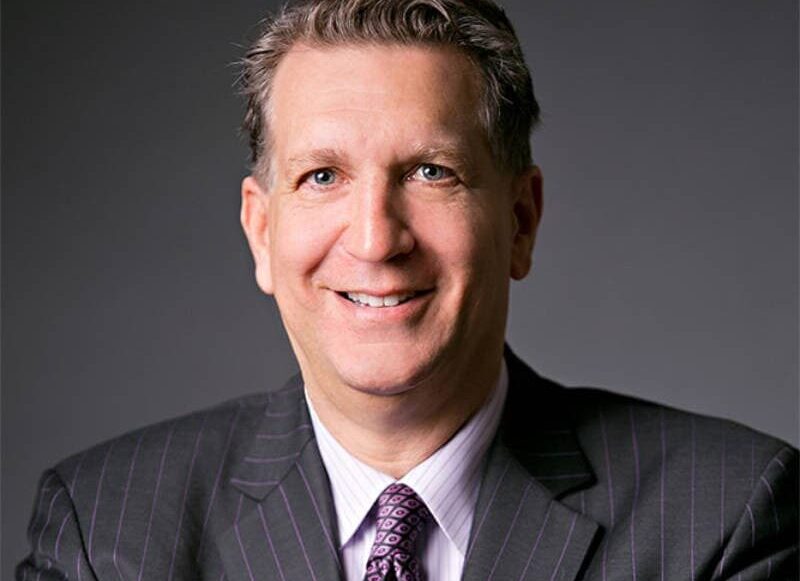Richard Levick, ‘father of modern reputation management,’ dies at 65
Levick is remembered for his work on prominent geopolitical crises including Guantanamo Bay and Catholic Church sex abuse scandals.

Richard Levick, Esq., who pioneered the fields of crisis and litigation management, died on Tuesday from complications of cancer. He was 65.
As chairman and CEO of Levick, he worked with companies and global governments on some of the highest-profile crises of the last few decades including the Gulf oil spill, the Venezuelan financial crisis, Chinese trade wars and more, according to his biography on the firm’s website.
Levick also represented the Catholic Church during clergy abuse scandals, memories he recounted in a 2018 Forbes op-ed.
“So, I entered our engagement with this order of the Church instinctively aware of the stakes; instinctively aware that, when a great institution is mortally wounded, we are all harmed,” Levick wrote. “We all lose some vital comfort, some sense of shared mission. The longer any institution ignores the causes of its crises, the greater the peril it must ultimately face.”
Perhaps most famously, Levick represented a group of accused terrorists being held at Guantanamo Bay, the Washington Post reported. Many said they were wrongfully arrested in Afghanistan.
Levick’s strategy involved humanizing the Kuwaiti men and emphasizing the American values he said were violated by their detention, trying to find common ground with conservatives on Constitutional issues related to habeas corpus and due process.
“Without question, he was the father of modern reputation management,” said Max Marcucci, senior vice president at Levick. “Coming from a legal background and working with law firms to represent the law firms themselves and to represent their clients, that’s really the story of Richard and his legacy.”
Levick earned his J.D. from American University, where he would later become director of the School of Public Affairs Leadership Program. He also held a master’s degree in environmental advocacy from the University of Michigan. He was a member of the faculty at Fordham Law School and gave lectures at institutions including West Point, Harvard and Georgetown Law.
Levick co-authored four books, including “Stop the Presses: The Crisis and Litigation PR Desk Reference,” was a frequent commentator in the media and hosted the “In House Warrior” podcast.
Levick’s firm will host a celebration of life, with details forthcoming.
Diane Schwartz, CEO of Ragan Communications, recalls her early career days in the industry and Levick helping her to navigate. “I have learned so much from Richard over the years, and am saddened by his passing. We’ve lost an industry icon who was so wise, supportive, funny and kind.”
An email sent from Marcucci remembered Levick as a man with ”seemingly boundless energy, passion, thirst for knowledge, and sense of humor.”
“We will miss Richard deeply, but his legacy will live on through the work that we do every day, the people who were made better for having known him, and the countless reputations that were saved because of him.”
Allison Carter is executive editor of PR Daily. Follow her on Twitter or LinkedIn.








Richard Levick’s work showed that representing unpopular accounts is not only okay but could benefit America. We can judge an account’s guilt or innocence only if we willingly listen to the account’s side of the story.
A common blunder of clients in an Accusation PR situation is to deny everything. CEOs may almost demand this. But who among us is 100% innocent of all sin and human error? A better response to accusation is to point out:
1. The accusers are telling only one side, the accusation, not both sides. (Let anyone try to argue against the truth of our “only one side” reply.)
.2. The public deserves to know the TRUTH about “the peril of the alternative,” how the public could get hurt if the accusers succeed in getting what they are demanding (often amidst curses and yelling). Commonly the public would suffer higher prices, lower supply, less freedom of choice and other damages.
.3. The TRUTH the public deserves to know is how much GOOD the accused company is doing for the public as in products supplied, jobs provided, taxes paid to help pay for our police, firefighters, hospitals, schools, good causes and more. The public deserves to know. Some of the best PR people walk around every day and evening with a “corporate resume” of history, achievement and success. Levick had much of this in his head!
I worked many years for unpopular accounts including Russia. They lost 30 million lives on our side in World War II and may have helped save millions of American and European lives. Their information people were exceptionally bright and had a whole Washington building the size of an embassy. I never once caught them lying to me, and all they wanted from PR as far as I could tell was a chance to tell their side of the story.
They flew my wife and me all around their country’s best sights, plants, hotels and restaurants. But today I’d be afraid because of Gershkovich to go there or even to go alone for a meeting at their New York or Washington office. I’d feel much safer in a major Arab country or certainly in China. But I’d have been proud to be Richard Levick or Levick-like generals at Apco, Qorvis or WPP’s Washington combat teams.
May Levick rest not so much in peace as in happy post-battle reviews of his PR triumphs.
I am asked why NOT “deny everything” as management often asks? One good reason is because if the activists can find even one or two small instances where we exaggerated, they can have a much more convincing case. The public may be encouraged to say “Aha! I told you we shouldn’t trust those bastards.” This shouldn’t happen. Give the other side nothing.
Another reason not to deny everything , some would say an even bigger reason, is that it isn’t honest. The BIG power in PR, what wins against accusers repeatedly, is the TRUTH.
It’s not just that you may have more credibility in future fights, it’s that you can often protect the client better with solid research now than with fudging. And contrary to what some others say, I think we should use not only positive truths favoring our side but research-disclosed weaknesses including any moral flaws of the other side
Correctly, Macarthur said “in war there is no substitute for victory.” In communications war there are damn few substitutes for truth. Let the other side try to deny everything.